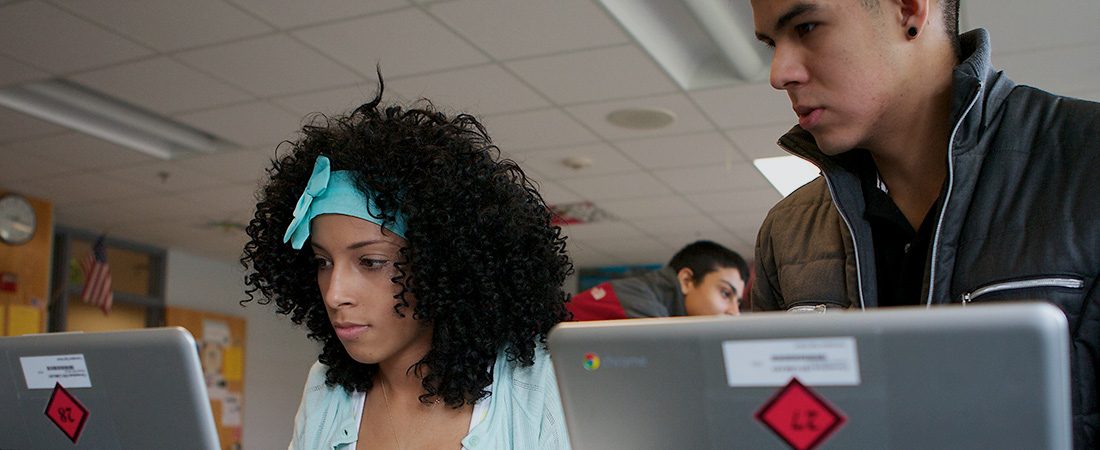
STEM skills—from computer programming to bioengineering—are the bedrock of the 21st century economy.
Not all students have a high-quality STEM education, which can limit their post-secondary learning and career options. EDC works to improve the quality, effectiveness, and equity of STEM learning and teaching, giving all students a solid foundation in computer science and creating pathways to STEM careers for students from underrepresented groups, students from low-income families, and English learners.
We develop STEM curricula, digital games, and apps that engage, excite, and challenge students, aiming to foster and use technology for robust STEM experiences. And through national resource centers and collaborative research, we guide STEM research and program design.
Learn about EDC’s work with Family STEM Communities.
Related Content
Tackling Inequity in the Mathematics Classroom
EDC’s Babette Moeller and Matt McLeod discuss their efforts to make mathematics teaching more equitable.
EDC Talks: STEM Education in Rural Schools
In this video, Pam Buffington discusses how to enrich STEM learning in rural communities.
A New Language for Mathematics
Young children often struggle to write down their mathematical ideas. Could computer programming be an easier language for them?
EDC Talks: Making Time for Family Math
What are some fun, easy activities that families can do to encourage math learning at home? (Hint: You are probably already doing some of them.)
Tapping, Swiping, and Learning Science
Research findings on The Cat in the Hat Knows a Lot About That!™ have implications for parents, educators, and educational media developers.
Projects
Resources
Here are a few of our resources on STEM. To see more, visit our Resources section.
This report offers research-backed guidelines to support designers of big data interfaces for education.
Conducted by EDC and SRI International, the study’s goal was to understand the extent to which providing access to media resources focused on critical science and engineering concepts can help children living in low-income households learn.
EDC and SRI International conducted an independent study of the Public Broadcasting Service (PBS) KIDS Play & Learn Science app, which includes in-app and direct hands-on science explorations for children ages 3 to 6 and their parents.
This book, published by Heinemann, supports grades 6–10 teachers in implementing EDC’s Transition to Algebra curriculum.
As part of the 2015–2020 Ready To Learn Initiative, the Corporation for Public Broadcasting (CPB) and the Public Broadcasting Service (PBS) devised a new model of community partnerships called Comm
Based on extensive research and collaboration with teachers, coaches, and schools, this book guides middle school mathematics teachers in building on multilingual learners’ strengths to ensure they thrive in mathematics class.
This executive summary captures the results of the National Survey on Supporting Struggling Mathematics Learners in the Middle Grades, a study designed and conducted by EDC.
Executive Summary of a report that examines The Cat in the Hat Knows a Lot About That!™, a PBS KIDS multi-platform media property based on “The Cat in the Hat’s Learning Library” book series by Random House and Dr. Seuss Enterprises.
Beauty and Joy of Computing is an Advanced Placement (AP) Computer Science Principles course developed by EDC and the University of California, Berkeley.
This briefing paper addresses two questions: